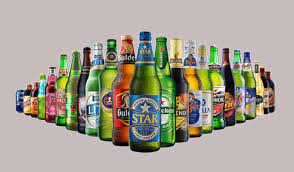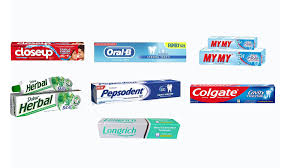Nigerian Breweries : BATTLING COSTS ,LEADING THE PACK

Nigerian Breweries Plc ,the iconic brewer of many unique brands of beer and malt drinks ,is widely acknowledged as a world-class corporate organization with resilience ; and this is the major driver of its industry leadership .
Even in the tough moments , it confirms this unique feat .In the FY:2020, the brewing industry ,no doubt , witnessed a rebalancing of market share controlled by the three industry leaders – NB, GUINNESS, and INTBREW, with a combined 98.9% share of industry revenue. Despite the impact of the pandemic and the limited scope for price adjustment to capture the cost pressure. , NB grew market share by 3.1% to 57.7% .; consequently, NB’s market share crossed 55.0% leaving the rest to fight for the balance .
When the efficiency of management of the leading three companies is plotted Nigerian Breweries is still in control with 4.48 , 3.62 and 2.18 % respectively for return on equity ,,return on invested capital and net margin ; for Guinness Plc it is -15.52, -14.72 and -12.5 % while for I B Plc it is -15.53 , -7.96 and -9.0 % respectively 4NB Plc,. When compared to Guinness and IB, NB post better profitability numbers but all three breweries are playing in a market where consumers have a lower purchasing power and are looking to affordability. The risk to these companies is the shrinking market. Prices cannot be cut forever, thus productivity improvements to reduce costs will be the differentiator and NB is with the joker
But its industry leadership may not be farfetched .Despite the prevailing deleterious environment it has continued to be resilient in its performance year on year and lead the pack with unshakeable leadership prowess .NB has remained consistently creative against all odds delivering internationally acclaimed beer with excellent and satisfying taste
. Unlike in the previous three years where each of the brewers rolled out a new product or developed a variant of an existing brand, only NB expanded its portfolio in 2020 to meet shifting consumer preference and boost market penetration.
The secret is strong and unique products .Drinkers have consistently made statements and identified with the brands associated with this iconic brewer .This positive image is what you get with beers that are known for rich taste and excellent quality.
There are incontrovertible facts about all its brands that are well known by all. These include its natural malted barley ingredients, beers unique blend, distinctive design and design updates which also feature on the exclusive crown corks that reinforce NB’s leadership and prominence as a brewer of choice.
To remain at the top, the brand and its promoters are not resting in any way. They are not unaware of new players and the ever changing business environment. Therefore they have unleashed their creativity and their good judgment towards retaining and maintaining their customer base across Nigeria and even beyond.
The first thing Nigerian Breweries does to retain consumer confidence and maintain its lead is to go public with some hitherto unknown facts. This information is the secret of the special taste and excellent quality which is the special process feature that is responsible for the rich beer brands , the extreme clarity and the crisp bitter taste that is satisfying. This secret is boldly ingrained on the label design which is regularly updated in an event of any modification. The above unique features deliver on it the leadership status in the industry
But challenges remain the deleterious clime . Despite Nigeria’s early exit from the COVID-19 induced recession, the direct impact of the persistent systemic risk factors and weak economic growth on consumer spending and production cost has remained a major challenge putting the brewery industry players on their kneels in the recent years.
The inclement weather is not over yet . Recently, the International Monetary Fund (IMF) in its latest Article IV Consultation report raised an alarm on this already projected that Nigeria’s GDP growth may plateau around 2.5% over 2021/25 period, if major reforms are not implemented, especially regarding dependence on crude oil. This projection is weak for an economy with average population growth rate of 2.7% per annum, as lower GDP growth relative to population growth means more citizens will become impoverished in the coming years ; this will have a direct negative impact on alcohol consumption and the earnings of brewery industry players, going forward.
Nigerian Breweries is not excluded from the impacts of the deleterious environment ;however it is fighting hard .The persistent pressure of the above scenario on consumer wallet and cost of production is hitting hard on Nigerian Breweries though it still continues to lead the pack . Though its revenue increased by 21.6% y/y (9M-21: +32.1% y/y) in Q3-21 ,its fortunes at the bottom line plummeted .. On revenue growth, analysts believe headline price increases across product categories and improved demand following the full reopening of the economy supported sales from on-trade channels which account for c.64.0% of beer industry sales were the major drivers . However , its q/q decline of net revenue by 3.4% was attributed to the usual weak third quarter seasonal attribute
In its Q3-21 trading update, the company revealed that the total sales volume grew by single-digit with Tiger and Maltina leading the growth in the premium and non-alcoholic portfolios, respectively, It also noted that tensions and disruptions in Eastern Nigeria impacted volumes.
However , the major spoilers were increase in operating expenses which offset the top-line growth as well as the inflationary impact on input costs ; operating expenses rose by 18.9% y/y while COGS was upwardly sticky, growing by 31.1% y/y, faster than revenue (+21.6% y/y).
The company was not oblivious of the above threats and it became highly cautious on its finance cost ..Its Net finance cost declined by 16.4% y/y, due to a 3.1% y/y decline in finance costs amid a 94.3% y/y decline in finance income .This was attributed to NB’s less reliance on bank overdrafts and commercial papers in the period .Precisely, the overdraft and Commercial paper financing declined sharply by 97.0% y/y in 9M-21 to NGN2.55 billion (9M-20: NGN85.82 billion).
But this was not enough to avert the damage to the bottom line .This was principally because NB’s Q3-21 performance, though this is expectedly reflected the seasonal effect associated with the third quarter. In addition, the prevailing FX issues and surging inflation continues to be a significant drag on margins and earnings, despite the top-line expansion.
The negative impact are not hidden. Overall, the company recorded a PBT of NGN0.80 billion in Q3-21 (Q3-20: NGN2.63 billion). Following a NGN0.30 billion tax expense in the period, PAT came in lower at NGN0.50 billion (Q3-20: NGN1.35 billion) EBIT and EBITDA declined by 35.3% y/y and 15.4% y/y to NGN4.82 billion and NGN14.85 billion, respectively .
Gross margin came in at 32.6% in Q3-21, 485bps lower than Q3-20’s print – the weakest reading in the year. The margin compression is indicative of the inflationary impact on input costs .
Despite the above misfortunes, one that cannot be disputed is that the brewer complemented its H1-21 earnings with consistent top-line growth, as indicated by the higher 9M-21 EPS. ; for the nine months ended September (9M-21), EPS grew 18.4% y/y to NGN1.03. For the love and care for its investors , on the 9M-21 EPS of NGN1.03, the board has declared an interim dividend of NGN0.40/s, translating to a yield of 0.8% on the last closing price of NGN53.00/s (29 October).
Analysts expect more robust earnings in Q4-21 This optimism is rested on the expected improved demand following year-end festivities and likely further price increases across key brands in Q4-21, both of which will boost the top-line. NB remains on track to deliver positive earnings in 2021FY
In spite of the deleterious clime , NB is leading the pack .At the end of 2019, the real GDP, the exchange rate, the inflation, and the unemployment rates have deteriorated to 2.2%, N306.00/$1.00, 11.4% and 21.3% respectively..Due jointly to weak growth in consumer demand and accelerated increase of cost lines., industry’s gross margin and EBITDA margin also fell to 33.5% and 11.6% respectively .
In 2020, following additional pressure on sales channels due to lockdown measures employed to tame the spread of the pandemic (especially in major commercial cities) and high Inflation rate (average: 13.2%), the industry’s gross margin and EBITDA margin fell further to 31.6% and 6.6% respectively
In FY:2020, the brewing industry witnessed a rebalancing of market share controlled by the three industry leaders – NB, GUINNESS, and INTBREW, with a combined 98.9% share of industry revenue. Despite the impact of the pandemic and the limited scope for price adjustment to capture recent cost pressures, NBand INTBREW grew market share by 3.1% and 1.1% y/y to 57.7% and 23.4% respectively, while GUINNESS lost 4.3%. Consequently, NB’s market share crossed 55.0% for the first time since 2017, while INTBREW’s clearly established itself as the second biggest player ahead of GUINNESS.
Nevertheless, the industry’s profitability declined further in 2020 relative to prior year. Precisely, the industry’s profit before tax (PBT) settled at a negative N30.4bn (2019: negative N5.7bn), as GUINNESS and INTBREW booked losses of N17.1bn and N24.9bn respectively. However, NB reported N11.8bn PBT in 2020, but this translates to a 50.4 y/y reduction compared to the prior year’s PBT of N23.4bn.




